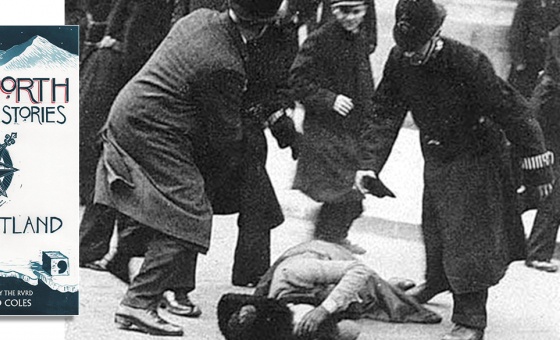This is the last article you can read this month
You can read more article this month
You can read more articles this month
Sorry your limit is up for this month
Reset on:
Please help support the Morning Star by subscribing here
THE WELSH nationalist armed struggle has long been eclipsed by its more violent and sustained Irish counterpart.
Now a new biography of one its former leaders, Welshman John Jenkins, provides an important insider account of how and why that largely forgotten struggle was waged.
The Movement to Defend Wales (Mudiad Amddiffyn Cymru — MAC) orchestrated 20 bombings in the 1960s, masterminded by the disgruntled British army sergeant.
Jenkins served in the Dental Corps and was radicalised by the Greek Nationalist (EOKA) uprising against colonial rule in Cyprus.
“I was able to see for myself what happens when a colony decides to free itself,” Jenkins recalled.
Unlike many of his fellow soldiers, he was reluctant to demonise the enemy and sought out the views of his Cypriot friends.

A free thinker, Jenkins was also influenced by his affinity with the Welsh mining community, and was shocked when during one industrial dispute he heard a sergeant major say: “They want the 1st Battalion Parachute Regiment down there, with bayonets fixed. That would get the buggers to work.”
Jenkins thought: “What sort of people think things like this? This is a fascist idea: drive them to work with a bloody bayonet.”
While many British soldiers saw decolonisation as an affront to their imperial destiny and would go on to serve as neocolonial mercenaries, as did 1 Para veteran “Colonel” Callan in Angola, Jenkins was inspired by the worldwide wave of national liberation struggles to have a go himself at freeing his own people.
When he saw the EOKA leadership descend from the hills in a single bus at the end of their armed struggle, Jenkins realised how a small group of armed men could cause so much political change.
It was this lesson that spurred him to stage his hit-and-run attacks on infrastructure in his effort to drive out the English overlords from Wales, personified by the investiture of a young Prince Charles.
While his struggle was ultimately futile and ended with Jenkins behind bars, it was notable among insurrectionary movements for its focus on attacking property rather than people and its use of a closed-cell structure to limit the damage done by informers, a strategy adopted by the IRA.
This book’s author, Dr Wyn Thomas, has done an admirable task of gathering extensive testimony and preserving it for the historical record, although at times the book can be too reliant on interview transcripts, stifling Thomas’s own voice.
John Jenkins: The Reluctant Revolutionary? Is published by yLolfa, £19.99.










